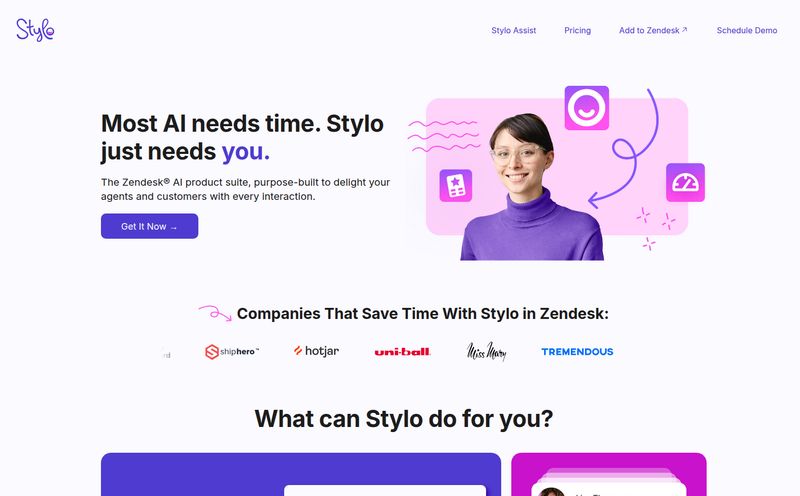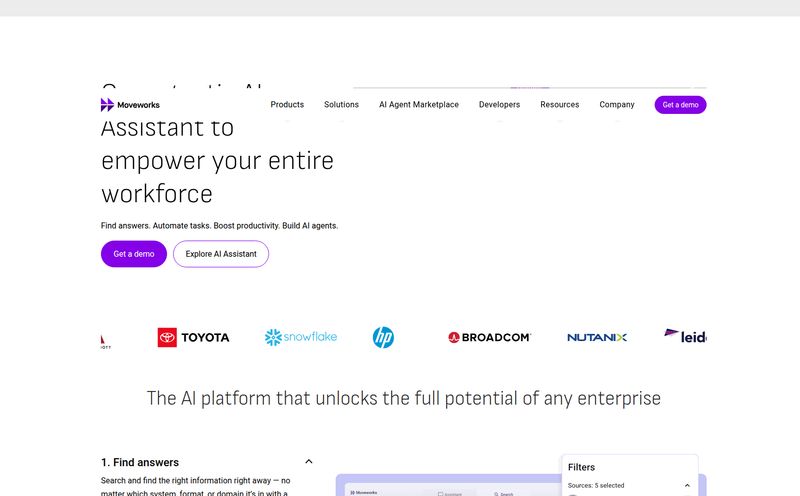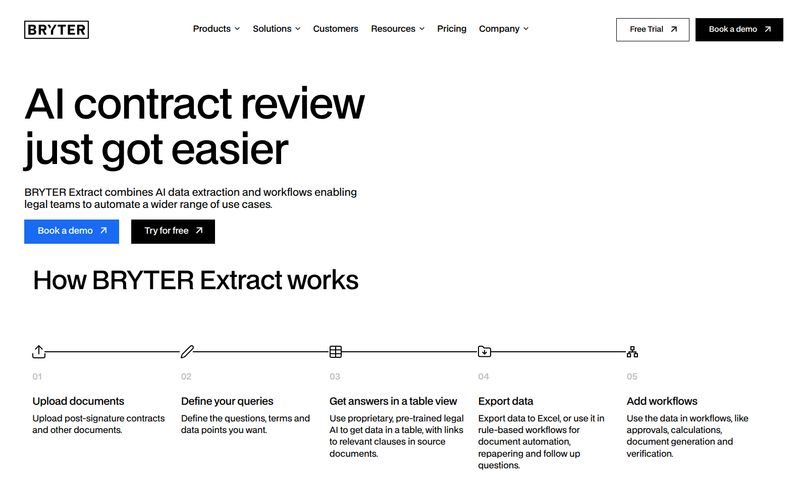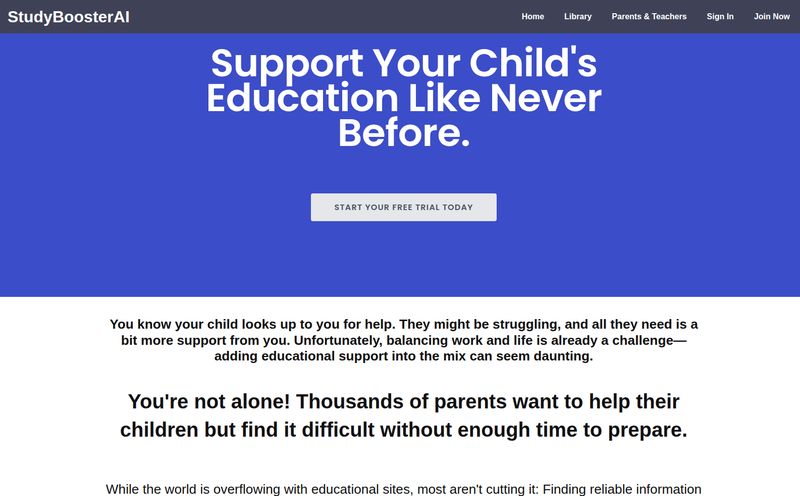We’ve all been there. It’s 10 PM, you’re drowning in a sea of browser tabs, and the caffeine has stopped working. You're hunting for that one specific case, that needle-in-a-haystack piece of statute that will make or break your argument. The traditional legal research process can be, to put it mildly, a soul-crushing grind. For years, we’ve been promised that tech would save us. And for years, we've mostly gotten slightly faster versions of the same old thing.
So when I hear about another “AI-powered legal research platform,” my inner cynic immediately perks up. But every now and then, something comes along that genuinely makes me lean in a little closer. Lately, for me, that’s been vLex.
I’ve been kicking the tires on it, and it’s not just another search bar layered on top of a dusty old database. It feels... different. It’s an ambitious attempt to weave AI directly into the fabric of a lawyer's workflow, starting right from your Google search bar. So, is it all hype, or is it the real deal? Let's get into it.
What Exactly Is vLex, Anyway?
First off, vLex is a lot more than just the Chrome extension that’s been getting some buzz. The extension is the gateway, but behind it lies a massive, sprawling ecosystem. Think of it less as a single tool and more as a comprehensive research department. At its heart, it combines two powerful things: an enormous library of legal information and a pretty clever AI assistant named Vincent.
The library is no joke. We're talking case law, legislation, regulations, and dockets from not just all 50 U.S. states but from over 17 countries. For anyone working in international law or dealing with multi-jurisdictional issues, that’s a huge plus right out of the gate. It's like having a library card that works in London, Madrid, and Los Angeles simultaneously.
But the data is only half the story. The AI is what stitches it all together. The goal here isn't just to help you find documents, it's to help you understand them and find the answers buried within. A subtle but profound difference.
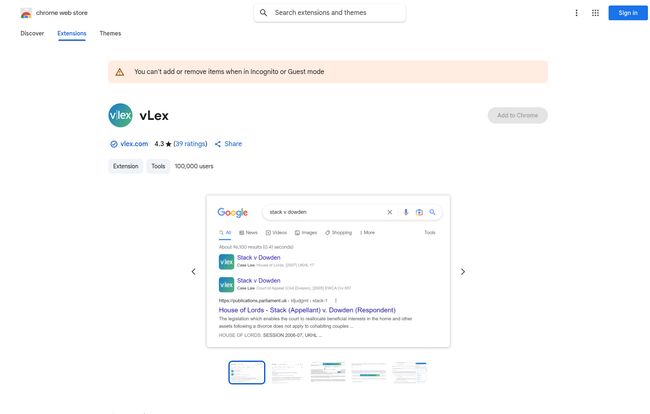
Visit vLex
The Chrome Extension: Your Research Sidekick
Okay, let's talk about that Chrome extension, because for many people, this will be their first taste of vLex. And honestly, it’s a brilliant move. It meets you where you are. We all use Google, right? Instead of making you log into a separate platform for every little query, vLex piggybacks on your existing habits.
Once you install it, you’ll notice a few changes. Search for a case on Google, and vLex will pop up alongside the regular results, offering a direct link to the case in its own database. If you’re reading an article or a blog post that mentions a legal citation, the extension can automatically recognize it and turn it into a clickable link. It’s a simple quality-of-life improvement that saves you countless tiny steps of copying, pasting, and opening new tabs. Those little steps add up over a long day.
This is where Vincent, the AI assistant, also comes into play, recommending related materials based on what you’re currently reading. It’s like having a research assistant quietly looking over your shoulder and saying, “Hey, since you’re interested in that, you should probably check this out too.” Sometimes it's incredibly helpful, other times it's just okay, but the intent is solid.
Digging into the Features That Actually Matter
An extension is nice, but the real power is in the main platform. You're not going to invest in a tool like this just to make your Google searches a bit fancier. You’re doing it for the heavy lifting.
A Database That Crosses Borders
I mentioned the global database before, but it's worth repeating. The legal world is more interconnected than ever. Having a tool that can seamlessly pull common law from Canada, civil code from France, and state statutes from California in one interface is a massive advantage. The days of needing three separate, expensive subscriptions to do that kind of work might be numbered.
The AI That Does More Than Fetch
Everyone's slapping an "AI" label on their products these days. So what makes vLex's AI interesting? For me, it's the focus on argumentation and citation checking. One of its standout features is a proprietary citator that checks for negative treatment. While the big players like LexisNexis and Westlaw have their own established systems (Shepard's and KeyCite, respectively), vLex built its own from the ground up, called CERT. It’s designed to be incredibly thorough in flagging when a case has been overturned or criticized.
The AI can also help you build a case by identifying similar arguments across thousands of documents, showing you how they were treated, and helping you find the strongest authorities to support your position. It’s a move from simple keyword matching to conceptual understanding. That’s the dream, isnt it?
Plays Well With Others
vLex also seems to understand that it doesn’t exist in a vacuum. The platform offers integrations with common legal tools for practice management and document drafting. I haven’t tested all of them, but the fact that they’re building an open ecosystem rather than a walled garden is a very good sign. It shows they respect the workflows that firms already have in place.
Let’s Be Honest: The Good and The Not-So-Good
No tool is perfect. Let's get down to the brass tacks. I really appreciate the scope of the database and the forward-thinking application of AI. The Chrome extension is genuinely useful, and the fact they offer a free trial shows confidence in their product.
However, there are a couple of things to be aware of. First, the pricing. It’s not listed on the website. This is pretty standard for enterprise-grade software, but it's always a bit of a frustration. You have to schedule a demo and get a custom quote, which can be a hurdle for smaller firms or solos just trying to budget. Second, to get the absolute most out of the advanced AI features, there is a bit of a learning curve. This isn’t a flaw, per se—powerful tools often require some training—but don't expect to master all its nuances in an afternoon. Finally, while their coverage is impressive, it's always smart to check if they have deep coverage for your specific practice area and jurisdiction, especially if it's highly specialized.
Who Should Be Using vLex?
So, who is this for? In my opinion, vLex is a fantastic fit for a few specific groups. Litigators who live and breathe case law will find the AI analysis and the CERT citator incredibly valuable. Law firms with any kind of international practice should absolutely be taking a look. The cross-jurisdictional capabilities are a core strength. Academics and law librarians will also love the sheer breadth of the database.
Who might want to hold off? If you're a solo practitioner with a very localized practice (say, family law in a single county) and you’re on a shoestring budget, this might be overkill. Your local bar association's resources or a more basic plan from a competitor might be all you need. vLex seems built for complexity and scale.
Final Thoughts: A Tool Built for Modern Law
So, back to the original question: Is vLex the future of legal research? It just might be. Or at least, a very clear picture of what that future looks like.
It represents a shift from simply accessing information to interacting with it. It’s about shortening the distance between a question and an answer, between a theory and the authority to back it up. It’s not perfect, and the pricing model will be a barrier for some, but the ambition is undeniable. The combination of a world-class database with smart, workflow-integrated AI is exactly what the legal profession needs to move forward. If you're tired of the old grind, I'd say vLex is, without a doubt, worth a look. Go get the free trial and see for yourself.
Frequently Asked Questions
What is vLex in simple terms?
vLex is a legal research platform that uses AI to help lawyers and legal professionals search through a massive global database of cases, statutes, and other legal documents. It also has a Chrome extension that integrates its features directly into your web browser.
Is vLex free to use?
No, vLex is a premium, subscription-based service. However, they do offer a free trial so you can test out the platform and its features before committing. The Chrome extension is free to download, but its full functionality is tied to a vLex subscription.
How is the vLex AI different from others?
vLex's AI, named Vincent, focuses on contextual understanding. It doesn't just find keywords; it helps you find documents with similar legal arguments, and its proprietary citator, CERT, is designed to accurately identify when a case has received negative treatment.
Is vLex a good replacement for Westlaw or LexisNexis?
It can be. For many firms, especially those with international or complex litigation needs, vLex is a powerful competitor and a viable alternative. Its strengths are in its global database and unique AI features. The best choice always depends on your firm's specific needs and budget.
Is vLex difficult to learn?
Basic searching is very intuitive and easy. To use the most advanced AI features for building arguments or deep analysis, there is a learning curve. It's a powerful tool, so investing a little time in training will pay off in the long run.
Does vLex cover law outside of the United States?
Yes, absolutely. This is one of its biggest strengths. vLex has extensive legal databases for more than 17 countries, making it an excellent tool for international law and comparative legal research.
